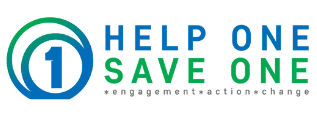The One Percent Solution: A Suggestive Model towards Non-Governmental Initiatives and Economic Empowerment in Nigeria

Posted on August 4th, 2023
By NnaEmeka Chukwujindu
Nigeria is currently mired in intractable economic crisis. From dwindling oil revenues and rapidly depleting foreign reserves to a stagnant IGR (Internally Generated Revenue) base, mass unemployment, especially among its burgeoning youth population, poverty, hunger, doble digit inflation, critical security issues, infrastructural decay, etc.
Even with the excitement and optimism of the newly inaugurated presidential administration, there remains, and palpably so, a lingering sense of doom that not much of the status quo would significantly shift to alter the direction of the country or reverse its current grim trajectories.
Against this backdrop, and the misgovernance experiences dating back to the postindependence years, and deepening much further subsequently, it has become increasingly evident that the government alone, no matter how well-intentioned or positioned, cannot singlehandedly be the answer or solution to the country's manifold problems. Over-reliance on the federal and state governments, which for the most part, have arguably been the major problem, would not provide Nigerians with all the answers to the present situation.
It has become critically necessary for Nigerians to think through a new paradigm; one that seeks other innovative approaches and solutions that, counter-intuitively, centers around the most privileged and economically favored in the country.
Nigeria's capitalist structure is not aligned with the Western model where enlightened self-interest and altruism is the norm, but rather is more centered and skewed toward consumption (rather than production). The dangerous reality being that the rich and wealthy barricade themselves behind huge mansions with gated high walls and electrified barbed wire fences – isolated from everyday reality - and are routinely escorted with armed motorcades and escorts through pothole-ridden and poorly maintained roads, even in the major cities.
There is little doubt that the Nigerian super rich have a higher stake than most and stand to lose more in the country's dimming economic outlook and dwindling financial fortunes.
This writer posits that it is time to turn to the richest Nigerians, (the One Percent) to wit, the industrial barons, banking titans and individual billionaires and multimillionaires who have been direct or indirect beneficiaries of governmental largesse or programs. With the right combination of incentives and recognition, this upper class may be more motivated to consciously and conscientiously, individually and/or collectively band together and contribute, even more, to uplifting the sagging fortunes and circumstances of the underclass and less privileged, thereby ‘helping’ to save the country from imminent collapse.
It is no secret that the great fortunes and organized philanthropic and charitable endeavors of the extraordinarily rich and privileged have contributed immensely to shore up economies and sociopolitical stability among the industrialized Western countries.
According to a report by Giving USA Foundation, it is estimated that in the United States philanthropic and charitable giving contributed up to 3% of the GDP (gross domestic product), reaching a record amount of $471.44 billion in 2020 - mostly through corporate and individual foundations and charitable nonprofits or NGOs (nongovernmental organizations).
These contributions supplement governmental efforts, revenues, and investments, and are often channeled towards education, health, housing, food, poverty alleviation initiatives, environmental and human services, recreational, arts, cultural programs, among others.
A recent World Bank report , ‘A Better Future for All Nigerians: Nigeria Poverty Assessment’ (2022) - concludes that 4 in 10 Nigerians were living in poverty, with "the highest number of people living below the poverty line among African countries", and projected to rise to 95.1 million in 2023.
While macroeconomic structural reforms and key public policy proposals have been proposed by the World Bank Group, the federal and state governments must begin to consider other practical and workable options.
A good start would be the enactment and implementation of meaningful tax code changes (through deductible charitable expenses as may be agreed) that would create a favorable enabling environment and act as incentives towards systematic and formalized independent financial and other contributions delivered directly or through registered community development associations and/or nongovernmental organizations.
The One percent solution, as proposed, looks to adaptative models centered around needs-based or impact-centered ‘Adopt-a-Town/Village/Community/Road’ urban/inner city or rural projects, either based on donor choice/s or to be determined by the host communities.
Based on the findings of a recently commissioned microlevel field research study, it is conservatively estimated that the annual cost/capitalization for construction of private mansions and homes in rural communities and villages in one of the southeastern states in Nigeria was ten billion Naira, or US$12.5 million. Extrapolating from the same data, a modest voluntary tax-deductible one percent contribution from the owner or property developer would yield 10 million Naira annually for local community projects, investments, microloans and/or grants.
The One percent model further suggests that aspiring beneficiary communities may be tasked to pledge or raise matching funds to augment such donated contributions and resources, targeted to grassroots needs as healthcare clinics, agricultural cooperatives, skills acquisition/job training, indigent scholarships, etc.
These initiatives would serve to create more jobs, generate revenues, reduce unemployment, help sustain a stable middle class and bolster security in the respective towns, villages, and communities.
With the inverted pyramidal structure, anchored on the One Percent, Nigeria could begin to gradually revert to a more stable and balanced three-legged pyramid model that would benefit a larger number of her citizenry.
*The writer, NnaEmeka Chukwujindu, is Founder/CEO of Atlanta, Georgia, USA-based 501c3 nonprofit, HoSo – Help One Save One International, Inc.
https//www.hosofoundation.org
www.hosointernational.us
Get In Touch
Contact Form
We'd love to hear from you! Please complete the form below to get in touch.
